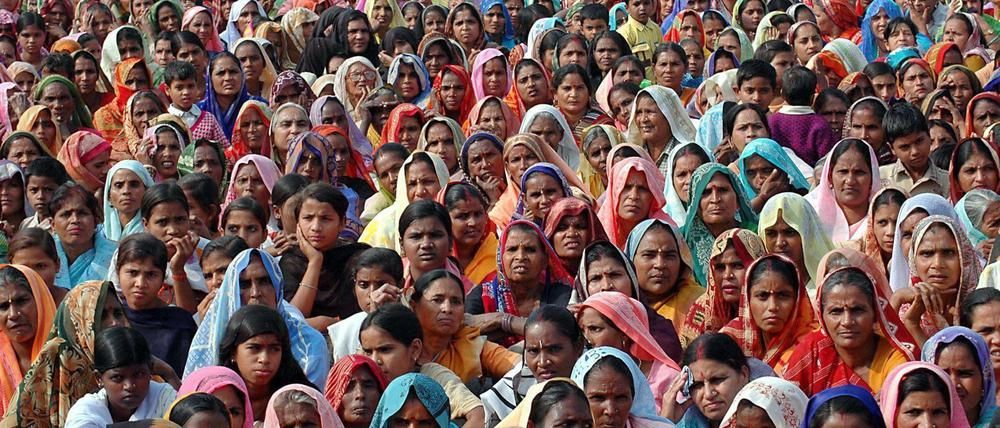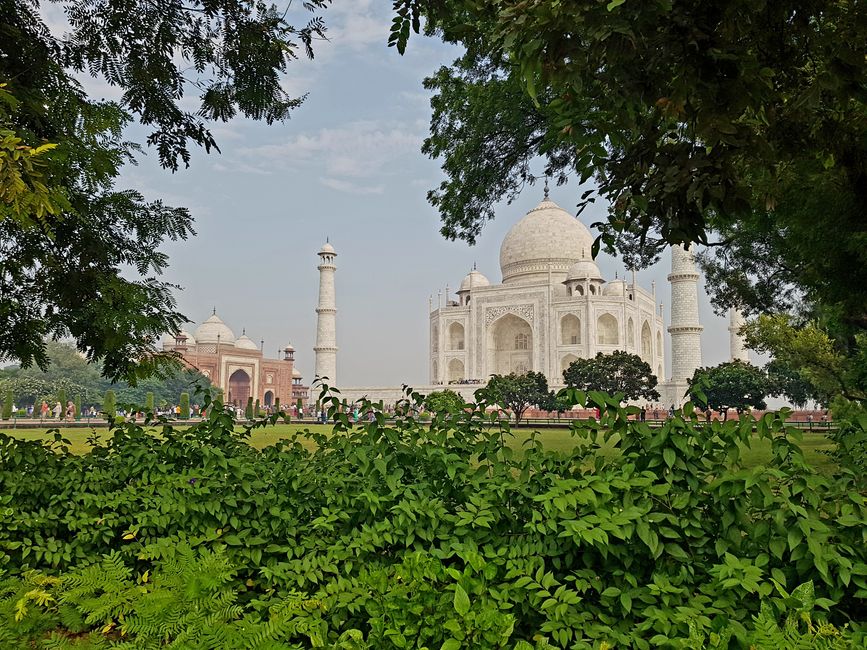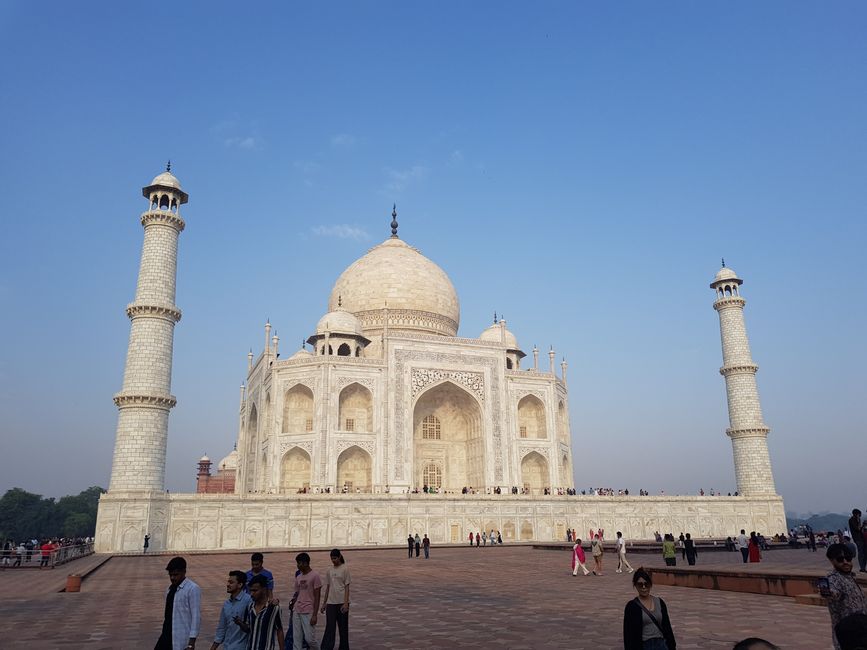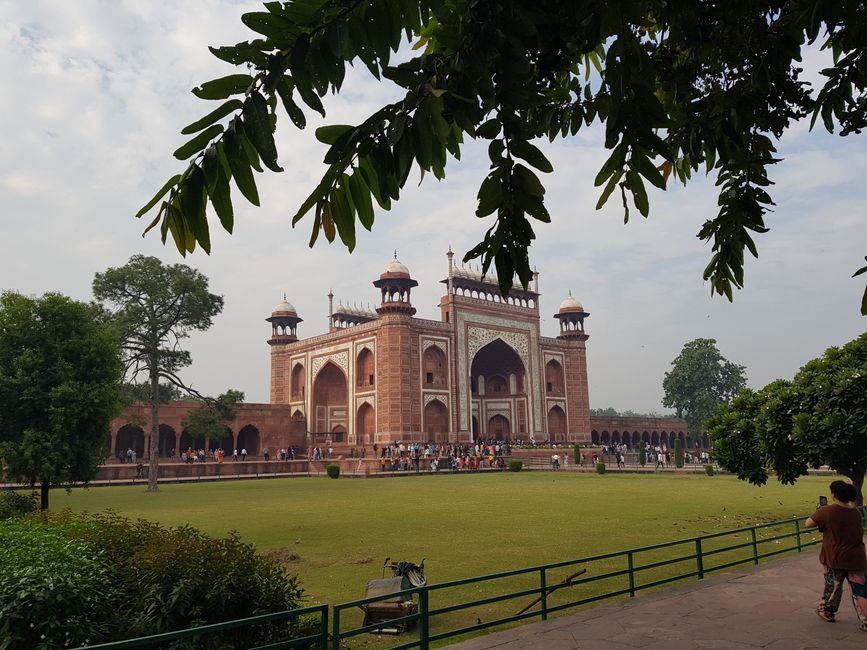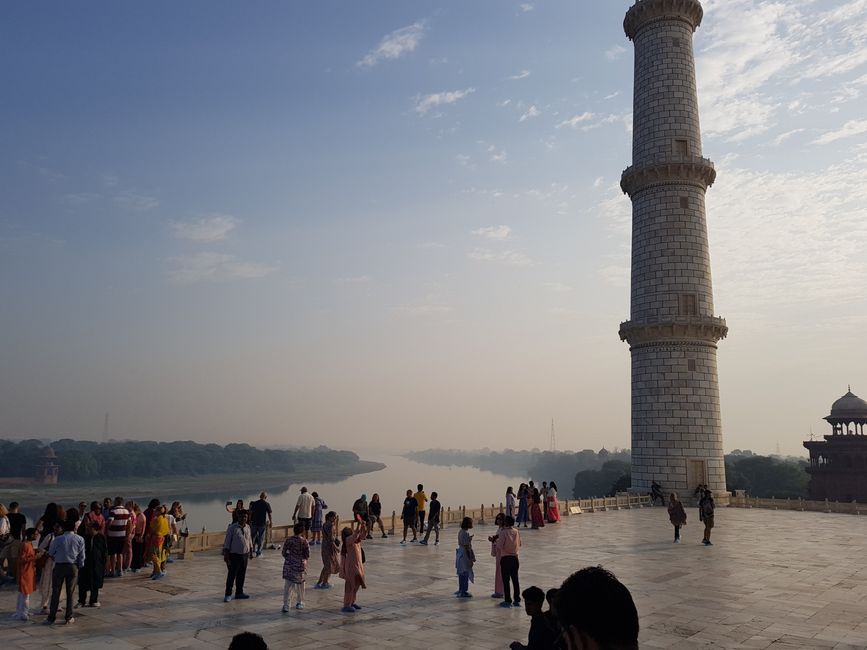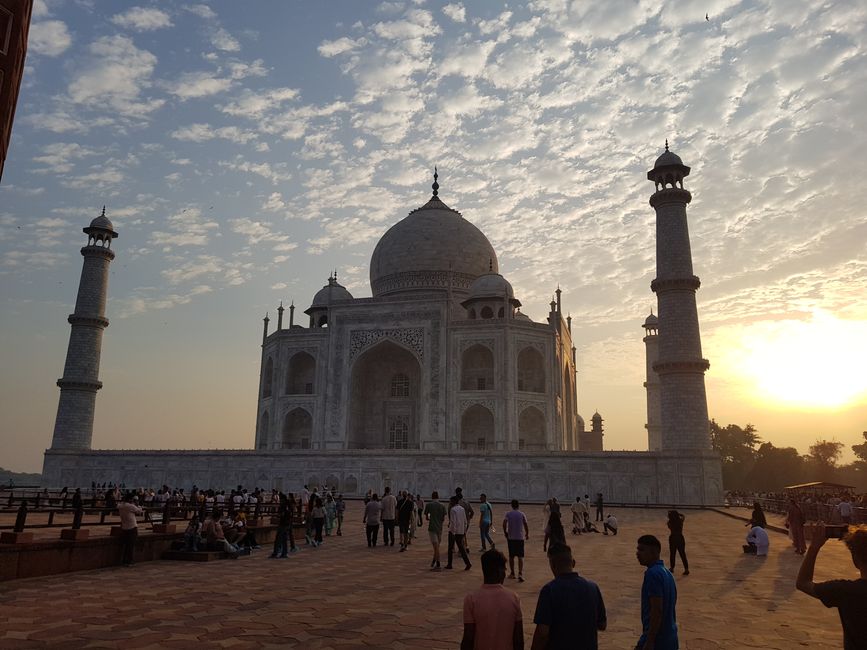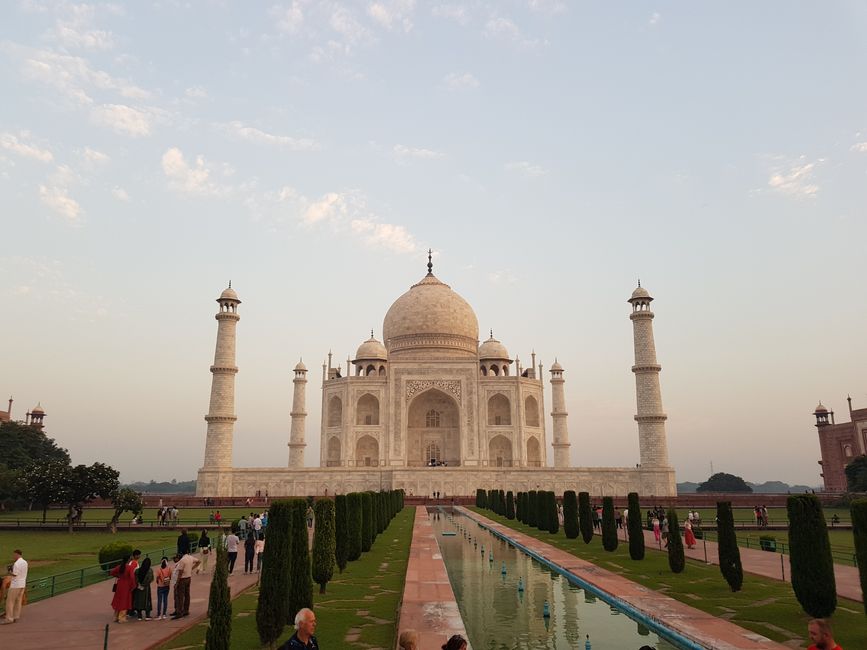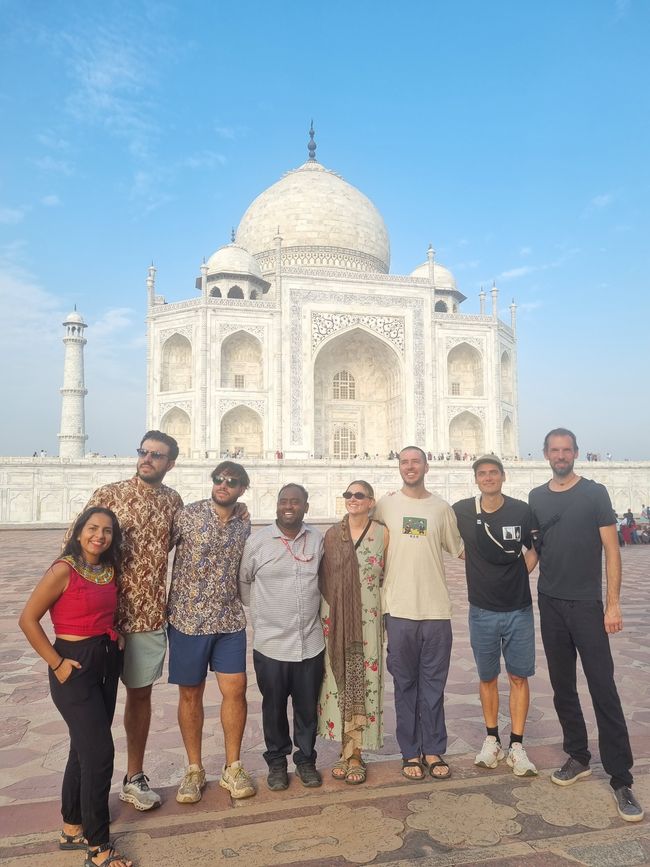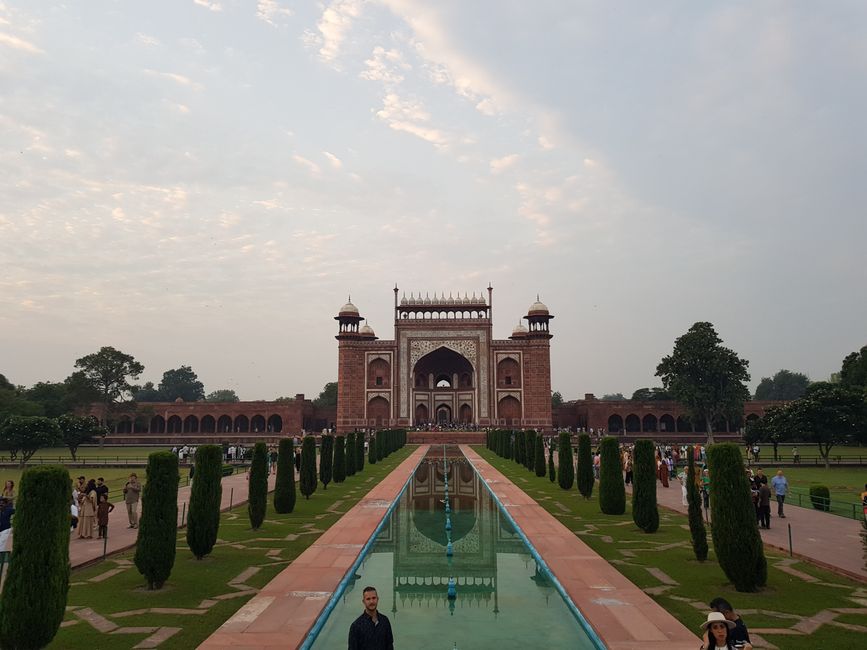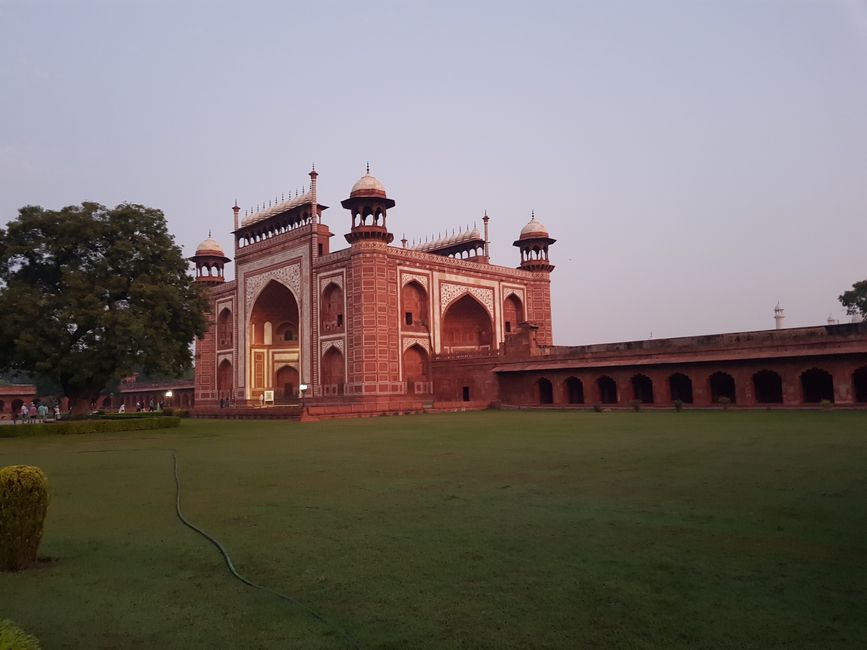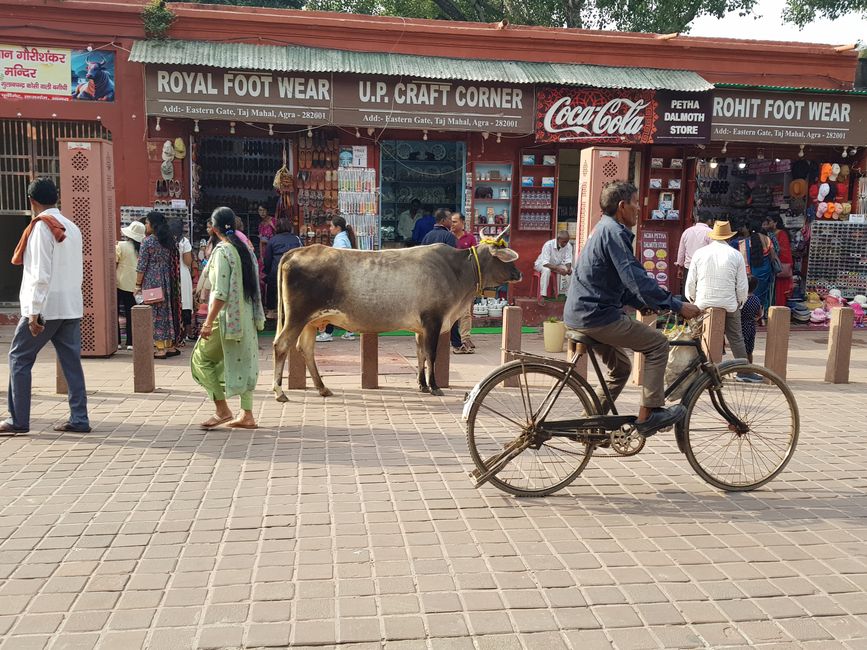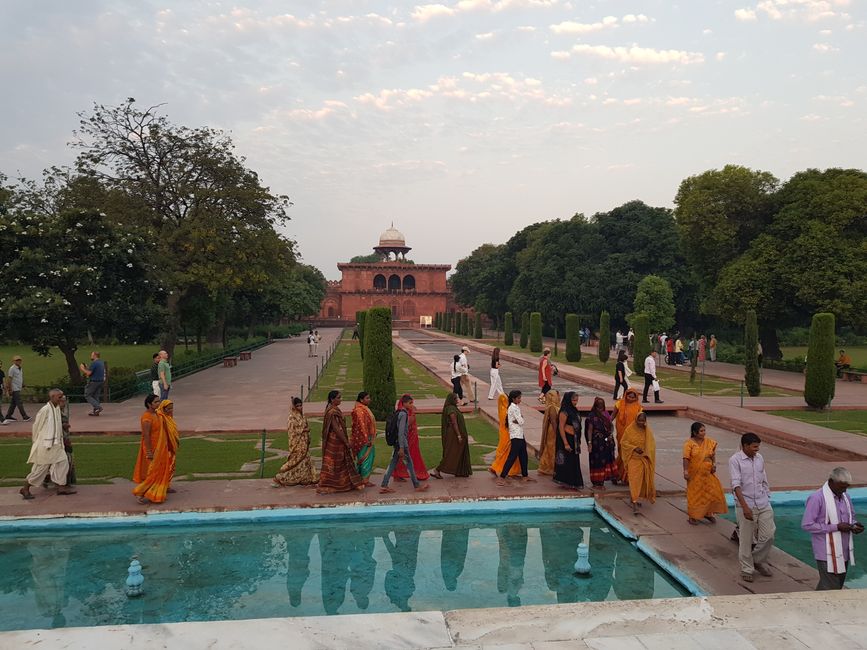Taj Mahal
Publicēts: 12.10.2024
Abonējiet biļetenu
Taj Mahal, I have seen it in countless pictures before, and I did not expect it to impress me so deeply. Shortly after 5 a.m., we meet Moses in the hostel courtyard and set off with six people in two tuk-tuks towards the Taj Mahal. Moses takes the lead and tells us a lot about the background of its construction. He guides us through the outer grounds as well as the interior of the Taj Mahal.
I would like to share a few impressive details with you. The Taj Mahal was commissioned by Shah Jahan in 1632 in memory of his great love, Mumtaz Mahal. She died in 1631 after giving birth to their 14th child, which highlights the high status of Mumtaz Mahal, given a harem of 5000 women.
About 20,000 workers from all over Asia built the complex over 22 years. The Taj Mahal can be virtually bisected; there is absolute symmetry concerning Mumtaz Mahal's tomb. The four minarets are not built at the usual 90-degree angles, but rather have a slight outward tilt. This is intended to allow the towers to lean outward in the event of an earthquake and protect the tomb. All the floral patterns are intricately inlaid with hand-cut gemstones in the marble.
Shah Jahan intended to build a black Taj Mahal for his own tomb on the opposite bank of the river before the Taj Mahal was completed. The son who took over power deprived him of his inheritance and had Shah Jahan imprisoned in the Red Fort. Shah Jahan died after 8 years of captivity and never set foot in the Taj Mahal.
This and many other pieces of information made today’s visit special.
Abonējiet biļetenu
Atbilde (3)
Wunderschöne Bilder!
Elke
Viel Glück auf Deiner interessanten Reise.Re
Vielen Dank :) 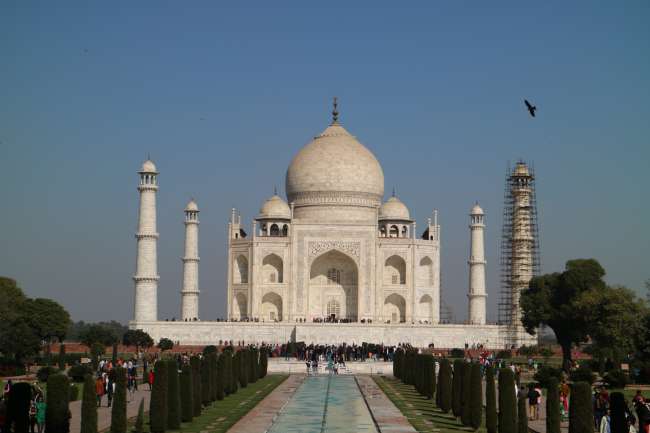
Ceļojumu pārskati Indija
